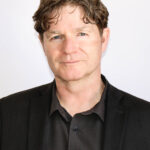New Findings In Recovery Science: Implications for Public Health and Clinical Practice

New Findings In Recovery Science: Implications for Public Health and Clinical Practice

Presented By
-
 John F. Kelly, Ph.D.More Info
John F. Kelly, Ph.D.More Info
Brought to You By
Dates and Times
-
-In-Person
Location
-
Northern Hemisphere B/C/DWalt Disney World Dolphin Resort
Lake Buena Vista, FL 32830
During the past 50 years a great deal has been learned about the etiology, epidemiology, typology, and phenomenology of addiction that has uncovered its complex causes, natural history, and highly variable presentation and clinical course. These novel findings have given rise to a number of clinical paradigm shifts and increased awareness of the many pathways through and out of addiction and into remission and long-term recovery. Also, while the concept of addiction “recovery” has been culturally commonplace during this period, reflecting a general process of salubrious change as individuals achieve more stable remission, in more recent years researchers have begun systematically to delineate formal operational definitions of the recovery construct to investigate and unravel its mobilizers, active ingredients, and variable outcomes. This presentation will review briefly the new knowledge gained during the past 50 years and describe how this has led to a new addiction recovery science that promises to better inform the nature and scope of the type of clinical and public health infrastructure needed to address it.
At the end of this course, participants will be able to:
-
Classify three empirically-supported recovery supports services shown to enhance remission rates and its duration.
-
Relate the major biobehavioral vulnerabilities that increase risk of relapse and addiction recurrence.
-
Identify recovery support services shown to extend the benefits of formal treatment.
-
Describe three major psychosocial mechanisms of behavior change shown to convey the benefits of treatment and recovery support services.
-
Delineate the typical timeline from onset to sustained and stable remission from addiction.

